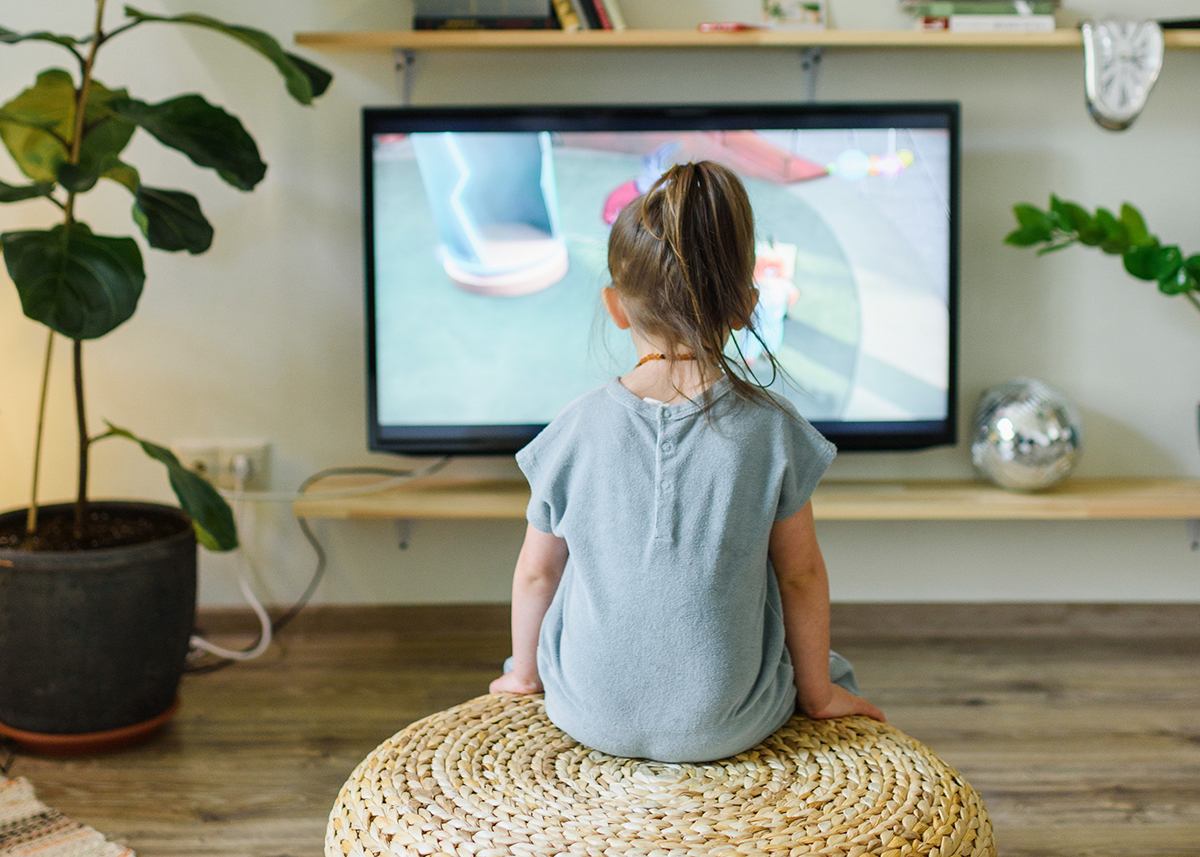Turning Off the Box

by Dani Hamblett
About five years ago I was in a diner having breakfast when a mom and daughter came in. I thought, “How sweet! A little breakfast date, just the two of them.” Once they got situated the daughter, probably around age 10, pulled a portable DVD player from her bag and proceeded to watch a movie with headphones on. Even single, childless me could not take my eyes from the scene. “Really?,” I thought. Mom drank coffee and looked out the window wistfully while daughter zoned out across the table, just the two of them.
Nowadays it’s not uncommon to see kids watching television in the vehicle next to you at a red light, or a mom using cartoons on her cell phone to distract a toddler in the grocery store. As digital media becomes more and more prevalent in our everyday lives, it may be kids who are most susceptible to overuse, simply because they don’t know any other way.
To this new generation of “digital natives” (the term given to those who have only experienced life post-internet), the idea of having to spend any time screen-free is what camping was to generations past. “Roughing it” has a new definition, and that’s not being able to whip out your phone and Google how long it takes to roast the perfect marshmallow, and whether or not the chocolate should be on top of or beneath it in a s’more. (The answer is that the hot marshmallow goes on top of the chocolate, according to the 7-step process outlined by wikiHow, with pictures.)
Of course, this is not just about television. A recent Kaiser survey showed that young people ages 8-18 are frequently multitasking with their devices, playing video games or surfing the internet while watching TV, streaming music, or watching YouTube videos while doing any of the above, not to mention their homework.
Maybe you’ve heard about the obesity epidemic among children in our country right now. It’s a problem that’s being attacked from all angles, including school lunches and Happy Meals. What has seen steeper change more recently, our diets or our kids’ exercise habits (or lack thereof)? What role do parents play, as they often log substantial screen hours themselves in an effort to pack more into each day?
Research shows an inverse relationship between parental involvement and technology use, with children whose parents set media boundaries spending less time using media. Needless to say, children who do not have a television in their room (a minority number at 30%) watch less of it overall than those who do. Just think, if you had a choice between homework and music videos when you were a preteen or teen, which would you choose?
Another interesting result of the Kaiser survey is that kids themselves reported that they were happier when they used less media. Those with lower rates of TV, video game and internet consumption reported higher contentment and less boredom than their heavier-using peers. They also read more and do better in school.
There are a host of other concerns relating to the effects of this new media on children’s developing minds; attention deficit disorder (ADD) is just one concern. If kids’ brains are learning and being rewarded for quickly bouncing around from one thought to the next, what does that say of their ability to concentrate and focus? It’s something that we don’t know the answer to yet, and may not for years to come.
This is not to say that all screen time is bad; technology really can be educational when used correctly. Personally, I want my son to be as tech-savvy as the next kid, but not at the expense of his skills in face-to-face communication, or simply knowing how to live in the real world. (Ask me about my teenage brother who missed a flight last summer because he couldn’t figure out his way around the airport, although he can figure out his way around a cell phone, iPod or any other gadget, blindfolded.)
Parental involvement seems to be the key to keeping media consumption from damaging children’s development. Simply setting time limits helps children self-moderate the content they are getting when they have less time to click or surf aimlessly. Do you want your child gobbling up TMZ.com when they could be using technology for something educational or creative that will actually enrich her life in some way?
It’s often said that children’s minds are “like sponges”; do you know what your kid is absorbing?








